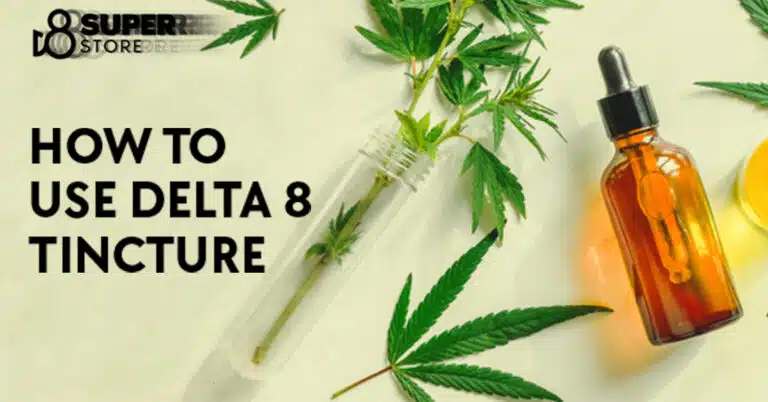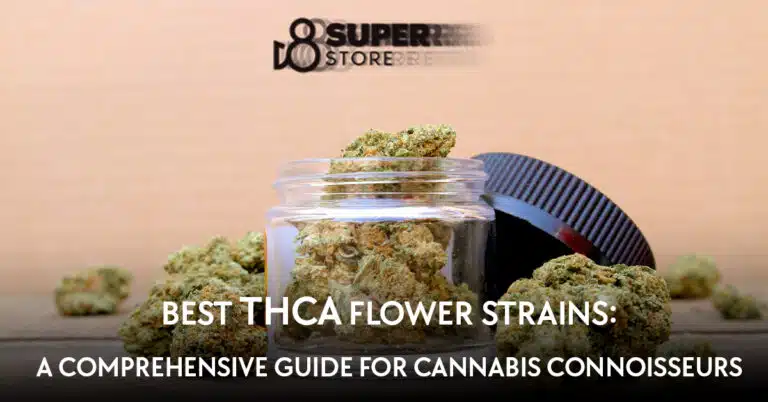Is THCa Legal in New Jersey: Understanding State Cannabis Regulations
Wondering if **THCa is on the cool list** in New Jersey’s cannabis rules? Let’s dig in! THCa chills in raw, untouched buds and won’t get you high. Light it up and boom, it turns into THC, the life of the party. Understanding THCa’s spot in New Jersey is like solving a puzzle, especially with its booming medical marijuana world. Looking for some comfort? New Jersey’s medical cannabis circle might just be your new best friend. Get ready! We’re about to show you how THCa finds its groove in a spot where using cannabis to feel better is all the rage, giving those in need a secret handshake into the club.
New Jersey’s laws have evolved to accommodate a changing perspective on cannabis. With the legalization of medical marijuana, the state permits registered patients to obtain and use marijuana, which would include naturally occurring THCa within the plant material. Your legal access to THCa, therefore, directly depends on your participation in the New Jersey Medicinal Marijuana Program. It’s worth noting, however, that recreational marijuana use recently became legal in the state, potentially influencing how cannabinoids like THCa are regulated.
The intricate web of cannabis laws can be complex, and as a resident or visitor to New Jersey, staying informed on the latest legal developments is crucial. For those enrolled in the New Jersey Medicinal Marijuana Program, detailed analyses of cannabinoid content in available strains provide significant insight, ensuring that patients are informed about the products they use. Whether THCa’s non-psychoactive status will affect its legal treatment separate from the broader legal context of cannabis remains to be observed as the state’s regulations continue to evolve.
Overview of Cannabis Legalization in New Jersey
In New Jersey, the journey toward cannabis legalization has progressed significantly, impacting how you may interact with cannabis in the state. The laws have evolved, giving rise to new regulatory frameworks.
History of Cannabis Legalization
In New Jersey, the path to legalization began with the Compassionate Use Medical Marijuana Act enacted in 2010, marking the state’s acknowledgment of cannabis for medical purposes. Over the years, you’ve seen this stance on cannabis transform, culminating in a significant milestone in 2020. A public referendum supported the legalization of cannabis for adult use, leading to the state passing legislation to legal this substance.
Current Cannabis Legislation
As of today, cannabis is legal in New Jersey for both medical and recreational use, with specific regulations. Under the current legislation, adults 21 and older may legally purchase and possess cannabis. However, the laws maintain strict guidelines on purchase limits, consumption areas, and the regulation of cannabis businesses.
Roles of the Cannabis Regulatory Commission
The Cannabis Regulatory Commission plays a pivotal role in shaping the cannabis industry in New Jersey. It’s tasked with overseeing and implementing the regulations for the cannabis market. This includes issuing licenses, monitoring legal cannabis operations, ensuring consumer safety, and enforcing compliance with state laws.
Remember, while cannabis is legal in New Jersey, it comes with a structured set of rules and regulations that guide its use and distribution.
THCa Legal Status
Understanding the legal status of THCa is important for you as it can differ notably from that of THC, despite being closely related chemically. New Jersey’s approach to regulation and permissible use cases highlight the complexities around this cannabinoid’s legality.
Comparison to THC
THCa, or tetrahydrocannabinolic acid, is a non-psychoactive precursor to THC (delta-9-tetrahydrocannabinol) found in cannabis. In its natural state, THCa does not produce the ‘high’ associated with THC. However, it may become THC through decarboxylation, which happens when cannabis is heated during activities such as smoking or cooking. In New Jersey, while legal weed regulations typically address THC content, THCa’s legal status hinges on its potential to convert to THC.
Regulation Specifics
The legal intricacies in New Jersey are clear: cannabis containing less than 0.3% THC on a dry weight basis is classified as hemp and is legally permissible under the 2018 Farm Bill. This regulation implicitly places THCa in a gray area, as it is not directly THC but could lead to its production. Regardless, unregulated THCa could pose legal risks if resulting THC levels exceed legal thresholds upon heating or processing.
Legal Use Cases
In New Jersey, the legal use cases of THCa are usually tied to medical cannabis, where medical marijuana patients may have access to THCa products for therapeutic purposes. Cannabis cultivars marketed for such use must undergo strict testing and regulation, ensuring compliance with state laws. Your possession and use of THCa should be in alignment with New Jersey’s medical marijuana program to avoid any unintended legal implications.

Medical Marijuana Program
New Jersey’s Medical Marijuana Program (MMP) provides a framework for patients to access cannabis for medical use, with specific regulations in place for qualification and dispensary operations.
Qualification for Medical Use
To qualify for medical marijuana in New Jersey, you must be diagnosed with a qualifying medical condition by a state-authorized healthcare provider. Upon receiving a diagnosis, you’ll need to register with the MMP to obtain your Patient ID card. Conditions that may make you eligible include multiple sclerosis, terminal cancer, muscular dystrophy, or chronic pain, among others. Documentation and registration are crucial steps in this process, safeguarding compliance with state laws.
Medical Dispensaries Operations
Once you’re enrolled in the New Jersey MMP, you may visit licensed medical dispensaries to obtain your cannabis products. These dispensaries, also known as Alternative Treatment Centers (ATCs), are regulated to ensure patient safety, the accuracy of labeling, and product quality. When visiting a dispensary, you’ll need to present your MMP card along with another form of identification. Dispensaries offer various strains of marijuana, catering to the different medical needs of patients, including products with varying levels of THC and CBD. Operations are closely monitored for compliance with state regulations, including the proper testing of products for potency of tetrahydrocannabinolic acid (THCa), cannabidiol (CBD), and other chemical properties essential for patient care.
Recreational Marijuana Market
| Aspect | Recreational Marijuana Market in New Jersey |
|---|---|
| Legalization Status | Legal for recreational use (since January 1, 2021) |
| Retail Sales Commencement | Expected in 2022 (implementation was underway in 2021) |
| Licensing and Regulation | The Cannabis Regulatory Commission (CRC) oversees regulations |
| Possession Limits | Up to 6 ounces of cannabis for personal use |
| Cultivation Limits | Adults are allowed to cultivate up to six plants at home |
| Retail Sales Locations | Licensed dispensaries and retail locations |
| Social Equity Provisions | Legislation includes provisions for social equity and expungement |
| Taxation | Subject to state sales tax and additional cannabis excise tax |
| Licensing Types | Various license types for cultivation, processing, and retail |
| Consumption Regulations | Consumption allowed in private residences; restrictions on public use |
| Local Control | Municipalities have the option to opt-out of allowing cannabis businesses |
Legalization in New Jersey has paved the way for a regulated recreational marijuana market, focusing on consumer safety and legal compliance.
Recreational Sales Regulations
To operate within New Jersey’s recreational marijuana market, dispensaries must adhere to strict sales regulations. Each dispensary is required to obtain proper licensing and comply with state taxation guidelines before any sales can take place. These guidelines ensure that the sale of marijuana products is conducted in a controlled and legal manner.
- Licensing: Dispensaries apply and receive a license from the state.
- Product Tracking: Seed-to-sale tracking to ensure product quality and legality.
- Tax Compliance: Adherence to state taxation policies.
Age Restrictions and Consumer Guidelines
You must be 21 years of age or older to legally purchase recreational marijuana in New Jersey. Dispensaries are tasked with verifying the age of their customers to enforce this rule strictly.
- Age Verification: Valid government-issued ID is required at the point of sale.
- Purchase Limits: Regulations define the amount of marijuana that can be purchased at one time.
As a consumer, you’re expected to follow all guidelines to maintain the integrity of the legal recreational market.
Unregulated Cannabis Products
When you explore the cannabis market in New Jersey, you’ll find both regulated products and those that fall outside the scope of regulation. These unregulated products, which may include tinctures, edibles, and concentrates, can be risky due to lack of quality control and legal accountability.
Risks and Concerns
Unregulated tinctures, edibles, and concentrates expose you to several risks. These products may contain contaminants or vary in THC levels beyond what is indicated, if labeled at all. For instance, while regulated products are tested for chemical properties, unregulated cannabis may have inconsistent levels of THCa, CBD, or other cannabinoids.
Your health can be jeopardized by these products. Without regulation, there’s no guarantee that what you’re consuming is safe, as these items might contain harmful substances or incorrect dosages. If you consume an edible with a high THC content, you could experience adverse effects, especially if you were expecting a lower dose.
Law Enforcement Measures
Law enforcement in New Jersey is tasked with differentiating between regulated and unregulated cannabis products. While law enforcement actively monitors the market to prevent illegal sales, the presence of unregulated products persists.
If you’re found in possession of unregulated cannabis products, you may face legal consequences. New Jersey has specific regulations governing the possession and distribution of cannabis, and veering outside these legal confines by engaging with unregulated products can result in penalties.
Remember, while New Jersey has legalized marijuana, this only applies to regulated products. It’s crucial for you to stay informed about the legality of the products you choose to use.
New Jersey’s Hemp Industry

In New Jersey, your participation in the hemp industry is governed by specific regulations that reflect the state’s commitment to safe and legal hemp cultivation and product sales.
Hemp Cultivation Regulations
New Jersey’s Hemp Program mandates that you, as a hemp grower, adhere to state guidelines for licensing. Before planting your crops, you must obtain a license from the New Jersey Department of Agriculture. The criteria for obtaining a license are stringent, ensuring that only qualified individuals participate in cultivation. For instance, under the program, all hemp must contain less than 0.3% THC, ensuring no psychoactive effects.
- Application Process:
- Submit an application to the New Jersey Department of Agriculture.
- Provide detailed information about your growing site(s).
- Pass a criminal background check.
- Cultivation Guidelines:
- Ensure that your crop does not exceed the 0.3% THC threshold.
- Have your crop regularly tested by a state-approved laboratory.
- Maintain records of your cultivation activities.
Hemp-Derived Products
Hemp-derived products, especially those containing cannabinoids like CBD, are subject to their own set of state regulations. As a hemp grower or processor, it’s your responsibility to verify that your hemp-derived products are produced in compliance with both state and federal law. According to research, the compounds in hemp such as THCa and CBD are controlled and must be within legal limits.
- Product Standards:
- Ensure that products are accurately labeled with cannabinoid content.
- Adhere to the legal standards for THC content within products.
- Sales and Distribution:
- Sell hemp-derived products that have been tested and approved.
- Follow New Jersey’s market regulations for hemp products distribution.
Remember, abiding by these regulations is crucial if you seek to be part of New Jersey’s budding hemp industry.

Impacts of Legal Cannabis on Society
The legalization of cannabis in New Jersey has produced distinct economic outcomes while reshaping the community and its legal system. Here, you’ll discover how the advent of legal weed has generated opportunities and confronted challenges.
Economic Outcomes
Since the legalization, New Jersey’s cannabusiness sector has been thriving. You’ve probably noticed new dispensaries opening, creating jobs, and stimulating economic growth. Reports from the Marijuana Policy Project illuminate how legal cannabis sales contribute to state tax revenues. This influx of capital supports public services and can potentially fund substance abuse programs and education.
Job Creation: New legal marketplaces require a workforce, leading to a range of employment opportunities, from retail to cultivation.
Tax Revenue: Sales from legal cannabis are taxed, providing New Jersey with a new revenue stream that can be allocated toward state and local projects.
Community and Legal System
Legal weed in New Jersey has far-reaching implications on the state’s community and legal system. One profound change is the reduction in cannabis-related arrests, freeing up resources that could be reallocated to focus on more serious offenses.
Legal System Relief: With cannabis decriminalized, courts and law enforcement can divert attention away from non-violent drug offenses to prioritize other areas.
Community Programs: Some tax revenues from cannabis sales are funneled into community programs, fostering public health initiatives and potentially reducing substance abuse.
It’s essential for you to understand that these outcomes are continually evolving, as state regulations and the societal understanding of legal cannabis develop over time.

Emerging Cannabis Businesses and Opportunities
As you explore the landscape of legal cannabis in New Jersey, two critical aspects stand out: the process of licensing for new dispensaries and the avenues of support for budding entrepreneurs in this sector.
Licensing for New Businesses
For new cannabis businesses, such as dispensaries, New Jersey has established a structured licensing process. First, you must understand that there are different types of licenses, each allowing for various activities with cannabis plants. To begin your journey, familiarize yourself with the New Jersey Cannabusiness Association, which offers resources on the latest regulatory updates and how they impact your business plans.
Support for Cannabis Entrepreneurs
Beyond obtaining a license, your next step is leveraging the available support networks. In New Jersey, multiple organizations provide guidance and advocacy for entrepreneurs. These resources aim to help navigate the complexities of the industry, from seed to sale. Networking within these groups can be invaluable in staying informed and connected with industry best practices and emerging opportunities.
Frequently Asked Questions
In New Jersey, the regulations and legal implications surrounding THCa are clearly defined, with specific points on its legality, shipping, and comparison with neighboring state laws.
What are the regulations surrounding THCa in New Jersey?
In New Jersey, THCa is regulated under the state’s medicinal marijuana program. THCa, in its non-psychoactive form, is legal when derived from legally grown cannabis within the state’s regulated medicinal framework.
Can THCa products be legally shipped to New Jersey?
THCa products can be legally shipped to New Jersey if they adhere to the state’s cannabis regulations. This means that THCa must be produced and labeled in accordance with New Jersey’s cannabis laws.
How do the THCa laws in New Jersey compare to those in neighboring states like Pennsylvania and New York?
New Jersey’s THCa laws are similar to those in New York, where medical cannabis is legal, and in Pennsylvania, which has also legalized medical marijuana. Each state, however, has its own specific regulatory framework, influencing the availability and legality of THCa products.
Are there any legal implications of possessing THCa in New Jersey for recreational use?
Possession of THCa in New Jersey for recreational use is bound by the same laws covering THC. It is legal only if the individual is complying with the state’s adult-use cannabis laws.
How does the potency of THCa affect its legal status in New Jersey?
The potency of THCa itself does not affect its legality in New Jersey. However, because THCa can convert to THC, which is psychoactive, regulations do exist based on the potential for conversion, particularly in regards to the labeling and sale of cannabis products.
What is the current stance of federal law regarding THCa, and how does it impact New Jersey?
Federal law does not differentiate between THCa and THC, treating all tetrahydrocannabinols as controlled substances. However, New Jersey operates under its own state laws which allow for THCa use in compliance with its medical cannabis program.










